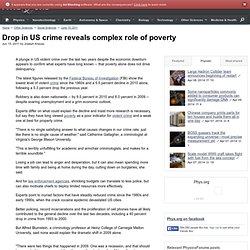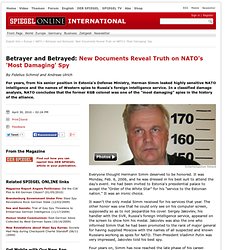

News for Intelligent Optimists. Links. The Shadow Superpower - By Robert Neuwirth. With only a mobile phone and a promise of money from his uncle, David Obi did something the Nigerian government has been trying to do for decades: He figured out how to bring electricity to the masses in Africa's most populous country.

It wasn't a matter of technology. David is not an inventor or an engineer, and his insights into his country's electrical problems had nothing to do with fancy photovoltaics or turbines to harness the harmattan or any other alternative sources of energy. Instead, 7,000 miles from home, using a language he could hardly speak, he did what traders have always done: made a deal.
He contracted with a Chinese firm near Guangzhou to produce small diesel-powered generators under his uncle's brand name, Aakoo, and shipped them home to Nigeria, where power is often scarce. David's deal, struck four years ago, was not massive -- but it made a solid profit and put him on a strong footing for success as a transnational merchant. Drop in US crime reveals complex role of poverty. A plunge in US violent crime over the last two years despite the economic downturn appears to confirm what experts have long known -- that poverty alone does not drive delinquency.

The latest figures released by the Federal Bureau of Investigation (FBI) show the lowest level of violent crime since the 1960s and a 5.5 percent decline in 2010 alone, following a 5.3 percent drop the previous year. Robbery is also down nationwide -- by 9.5 percent in 2010 and 8.0 percent in 2009 -- despite soaring unemployment and a grim economic outlook. Experts differ on what could explain the decline and insist more research is necessary, but say they have long viewed poverty as a poor indicator for violent crime and a weak one at best for property crime.
"There is no single satisfying answer to what causes changes in our crime rate, just like there is no single cause of weather," said Catherine Gallagher, a criminologist at Virginia's George Mason University. "There were two things that happened in 2009. Thinking Strategically. Homepage. Data.un.org.
[2010] U.S. Spies Want Algorithms to Spot Hot Trends. The U.S. intelligence community wants a sharp competitive edge on the world’s best and brightest ideas.
![[2010] U.S. Spies Want Algorithms to Spot Hot Trends](http://cdn.pearltrees.com/s/pic/th/spies-algorithms-trends-danger-81524098)
In an effort to find the next big thing before it happens, they’re looking to do away with fallible human trendspotters, and enlist an algorithmic system to “scan the horizon” and tap into the first signs of burgeoning memes in science and technology. Iarpa, the intel world’s far-out research arm, is already wary of trusting big calls and predictions to flesh-and-blood experts alone. Earlier this year, the agency solicited proposals for a system that would evaluate and rank the value of expert opinion based on niche, learning style, prior performance and “other attributes predictive of accuracy.”
This time around, Iarpa’s looking for a system that wouldn’t just rate experts, but would take over many of their responsibilities entirely. In other words, while Iarpa wants an code-driven prediction system, it’s one that’ll inevitably be founded on fallible human input. See Also: The NATO Monitor. Augean Stables. Betrayer and Betrayed: New Documents Reveal Truth on NATO's 'Most Damaging' Spy - SPIEGEL ONLINE - News - International. Everyone thought Hermann Simm deserved to be honored.

It was Monday, Feb. 6, 2006, and he was dressed in his best suit to attend the day's event. He had been invited to Estonia's presidential palace to accept the "Order of the White Star" for his "service to the Estonian nation. " It was an ironic choice. It wasn't the only medal Simm received for his services that year. The other honor was one that he could only see on his computer screen, supposedly so as to not jeopardize his cover. Four years on, Simm has now reached the late phase of his career. This is the same man whom NATO, in a classified 141-page report, has recognized as the spy who was "most damaging in Alliance history. " 28 NATO Countries Sharing Secrets According to the classified NATO report, the master spy also "compromised a wide range of NATO intelligence reports and analyses," including ones related to fighting terrorism, secret military plans and counterespionage.
Of course, Simm was not the only spy in NATO's past.